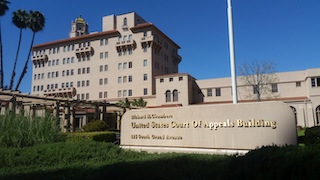It is prudent to understand that in state court, the judge will not receive a motion to withdraw a plea with empathy. In federal court, the judge may regard such a motion with animosity, as the following case exemplifies.
In a Nutshell: As the federal judge in the following case explained, “once a plea is accepted, permitting withdrawal is, as it ought to be, the exception, not an automatic right.” The following summary exemplifies this principal.
In the case of United States v. Ashot Minasyan, a case out of the U.S. District Court of the Central District of California, a health care fraud case, Judge Otis D. Wright, II, sentenced Minasyan to 78 months in federal prison and ordered him to pay roughly $4.2 million in restitution after Minasyan agreed to plead guilty to conspiracy to commit health care fraud, in violation of 18 U.S.C. §§ 1347 and 1349, and waived the right to appeal his conviction on all grounds except on grounds that his plea was involuntary.
As the reader of this summary may or may not know, in federal court, the Assistant U.S. Attorney and defense counsel may enter into a plea bargain, but the terms of the agreement are subject to the Presentence Investigation Report (PSR) and the judge’s determination. In other words, the judge plays a much more active role in sentencing, similar to a defendant in state court pleading “in the open.”
A little background information on the underlying case is helpful before considering Minasyan’s appeal that his appeal waiver was not knowing and voluntary, and therefore the court’s sentence was void.
The U.S. Attorney’s office alleged that between approximately 2006 and May of 2014, Minasyan and three others conspired to fraudulently bill Medicare for services not rendered and for “medically unnecessary” services. Minasyan jointly owned Fifth Avenue Home Health (“Fifth Avenue”) with Angela Avetisyan at 5250 Santa Monica Boulevard in Los Angeles (it was not in Glendale).
The business was located next to a medical clinic operated by Dr. Robert Glazer. Glazer’s clinic accepted only Medicare-eligible patients.
Minasyan paid “marketers” to recruit patients and bring them to Dr. Glazer’s clinic. Glazer then billed Medicare for medically unnecessary services and referred the individuals to Fifth Avenue and other providers for medically unnecessary home health services.
Between March of 2010 and May 2014, Medicare paid Fifth Avenue $4.2 million for home health care service, most of which came from Glazer’s referrals.
In 2015, a Medicare contractor reviewed a sample of Fifth Avenue’s Medicare billings between January 2011 and September 2014. As a result of the review, Medicare denied all 240 claims of the 55 sampled beneficiaries and alerted the police, which led to the federal indictment against Minasyan, Dr. Glazer, Avetisyan and one other person.
This article’s scope of discussion only covers Minasyan’s case. After being indicted in June of 2015, Minasyan hired a defense attorney, but in August of 2018, moved to replace him. His counsel reported that Minasyan was uncooperative and angry when counsel tried to communicate the government’s offer. The district court denied the motion and explicitly told Minasyan that he was free to ignore his counsel’s advice.
 U.S. Ninth Circuit Court of Appeals Pasadena
U.S. Ninth Circuit Court of Appeals Pasadena
Just before trial was set to start, however, Minasyan agreed to plead guilty to conspiracy to commit health care fraud and the government agreed to dismiss the remaining counts of money laundering and health care fraud, but Minasyan agreed that the judge could still consider such conduct underlying such charges “in determining the applicable Sentencing Guidelines range, the propriety and extent of any departure from that range, and the sentence to be imposed.”
Minasyan was then sentenced at a sentencing hearing and later, restitution was determined and ordered.
On Minasyan’s appeal to the U.S. Ninth Circuit Court of Appeals in Pasadena, the Ninth Circuit agreed with Minasyan from the outset that the “sentencing process . . . must satisfy the requirements of the Due Process Clause.” Gardner v. Florida (1977) 430 U.S. 349, 358. However, it noted that the record showed Minasyan was able to present evidence before and at the sentencing hearing to combat the government’s proposed loss amount, but he did not. The record also showed that the hearing conformed with the federal rules and guidelines.
Consequently, once the plea is accepted, “permitting withdrawal is, as it ought to be, the exception, not an automatic right.” United States v. Ensminger (9th Cir. 2009) 567 F. 3d 587, 593. To withdraw a plea, petitioner must show “ a fair and just reason” for withdrawing his plea. See United States v. Briggs (9th Cir. 2010) 623 F.3d 724, 728, 729.
Here, the Ninth Circuit found that Minasyan understood at the time of his plea that he and government disagreed on the amount of loss. Before his plea, he also acknowledged that the district court (the judge) retained jurisdiction to sentence him up to the statutory maximum. Judge Wright then did just that.
We present this article to show how rough it can be in federal court to withdraw a plea, but note that the facts of Minasyan’s case were especially bad and his litigation arguments were regarded as generally frivolous and intended to delay, both factors that surely influenced Judge Wright and the Ninth Circuit.
The citation for the United States Court of Appeals for the Ninth Circuit ruling discussed above is United States v. Ashot Minasyan (9th Cir., 2021) 4 F. 4th 770.
For more information about withdrawing a plea in state court, please click on the following articles:
 U.S. Ninth Circuit Court of Appeals Pasadena
U.S. Ninth Circuit Court of Appeals Pasadena